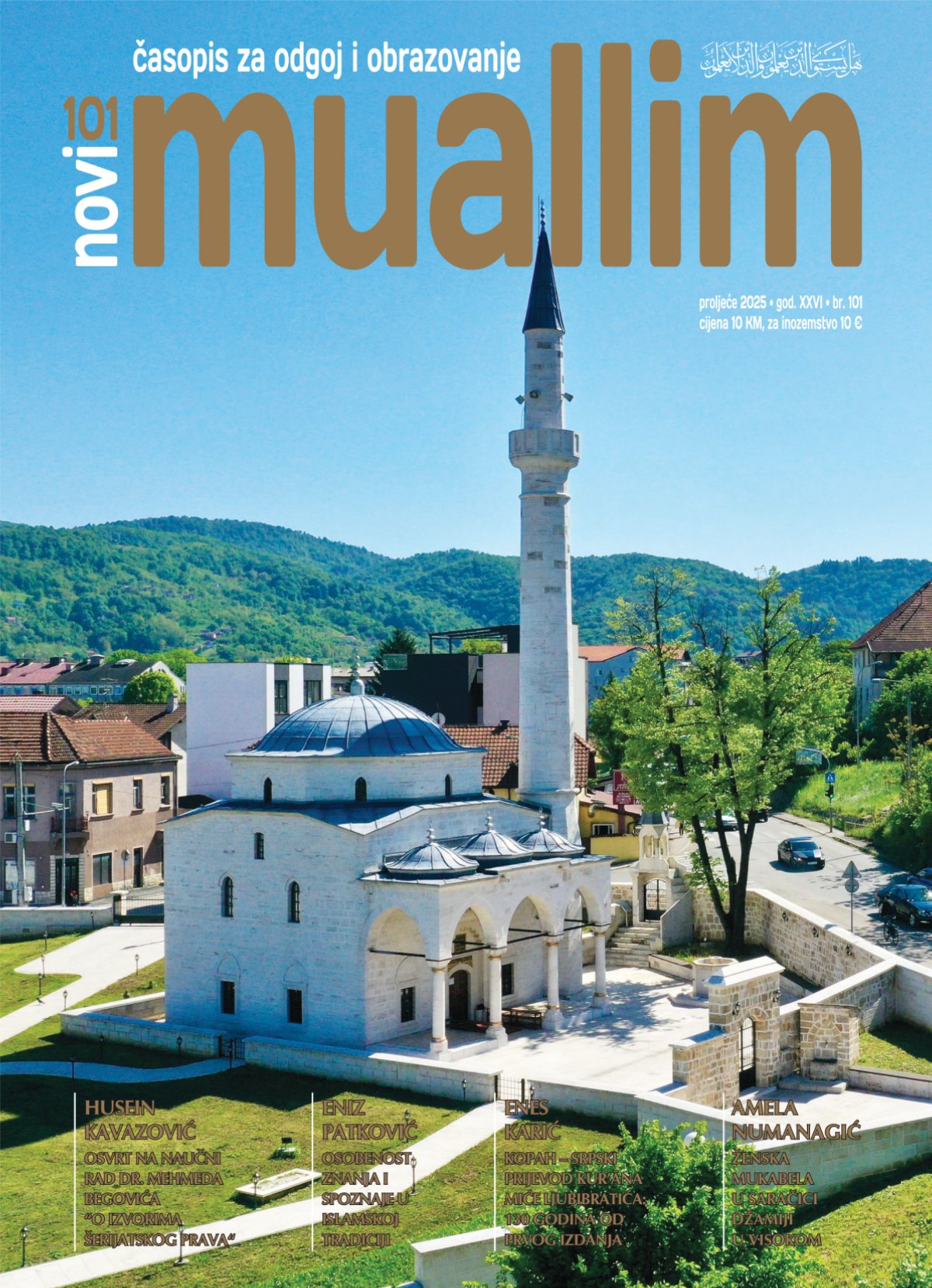Religiosity of Generation Z
DOI:
https://doi.org/10.26340/muallim.v26i101.2144Keywords:
religion, religiosity, youth, Generation ZAbstract
UDK: 28-42:159.95-053.6
The subject matter discussed here is the religiosity of Generation Z. Our goal was to evaluate various aspects of this group of youth's religiosity and thus better understand the role of religion in their lives. We also wanted to see to what extent religious beliefs affect their system of values in general. The research was conducted on a sample of 150 respondents aged between 18 and 28, of whom 94 were female and 56 were male. The research instruments used here are: A Short scale for Religiosity, a Questionnaire about Emotional Competence, Rosenberg’s Scale of Self-esteem, and The Variable of Religious self-identification. As for the methods, we used: the method of theoretical analysis, the descriptive-analytical survey method, and the method of correlation. The results showed that the youth of Generation Z can be characterized by a specific form of religiosity, marked by a very high degree of religiousness, and with a high level of emotional competence and self-esteem. On the other hand, the socio-demographic profile of the respondents (like gender, age, and a degree of self-declared religiosity) does not significantly impact differences in religiosity, emotional competence, and self-esteem. Analysis of these aspects provides a better understanding of religious trends and transformation within contemporary society, and it also provides religious communities with an insight into potential implications for future generations.
Downloads
Published
How to Cite
Issue
Section
License

This work is licensed under a Creative Commons Attribution 4.0 International License.
Naknada:
a. Časopis ne naplaćuje naknadu za obradu članaka (APC) i naknadu za podnošenje članaka.
Autori koji objavljuju u ovom časopisu pristaju na sljedeće uvijete:
- Autori zadržavaju autorska prava i pružaju časopisu pravo prvog objavljivanja, pri čemu će rad jednu godinu po objavljivanju biti podložan licenci Creative Commons imenovanje koja omogućuje drugima da dijele rad uz uvijet navođenja autorstva i izvornog objavljivanja u ovom časopisu.
- Autori mogu izraditi zasebne, ugovorne aranžmane za ne-ekskluzivnu distribuciju rada objavljenog u časopisu (npr. postavljanje u institucionalni repozitorij ili objavljivanje u knjizi), uz navođenje da je rad izvorno objavljen u ovom časopisu.


